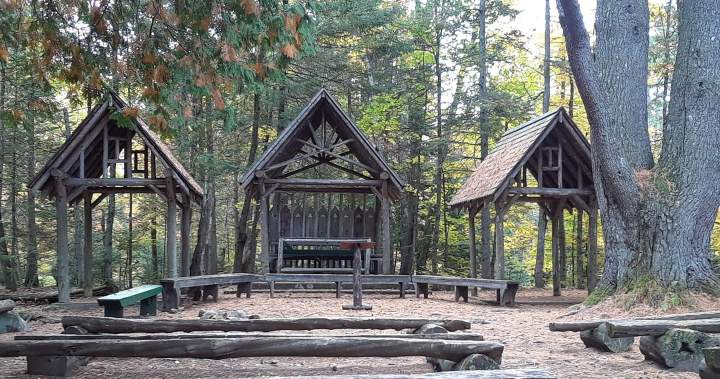In a decision that has sent ripples through Quebec’s scouting community, Scouts Canada has listed its historic Camp Tamaracouta for sale, effectively closing the final chapter on North America’s oldest continuously operated scout camp. Located in the picturesque Laurentians region northwest of Montreal, the 1,000-acre property has been a cornerstone of scouting tradition since 1912, shaping the experiences of countless youth over its remarkable 112-year history.
“This wasn’t a decision made lightly,” said Kaelem Moniz, Scouts Canada’s executive director of communications. “After years of declining enrollment and growing financial pressures, we’ve reached a point where maintaining the property is no longer sustainable for the organization.”
The camp’s closure represents more than just the loss of a recreational space—it marks the end of a living piece of Canadian scouting heritage. For generations, Camp Tamaracouta served as a formative wilderness experience where young scouts developed outdoor skills, environmental awareness, and lifelong friendships among its dense forests and serene lakes.
According to Scouts Canada officials, the decision stems from financial realities facing the organization nationwide. Annual enrollment has been steadily declining, dropping approximately 50 percent over the past decade, with particularly sharp decreases during the pandemic. The camp itself had been operating at a significant annual deficit, requiring resources that the organization determined could be better directed toward core programming.
“Camp Tamaracouta has been running at a loss for years,” Moniz explained. “We’re looking at nearly $200,000 in annual maintenance costs alone, even before considering necessary infrastructure upgrades that would require substantial capital investment.”
The property, which includes over 40 buildings, multiple waterfront areas, and extensive wilderness trails, has been listed with no publicly disclosed asking price. Real estate experts familiar with the Quebec luxury property market suggest the unique nature and size of the property could command anywhere from $10-15 million, though environmental protections and zoning considerations will likely factor into final valuations.
Former campers and scout leaders have organized to express their dismay at the decision. A newly formed preservation group, “Friends of Tamaracouta,” has launched a campaign advocating for alternatives to an outright sale.
“This camp represents more than property—it’s living history,” said Michael Carter, a former scout leader who attended the camp for over 25 years. “We’re asking Scouts Canada to consider conservation easements or partnerships with historical societies that could preserve this legacy while addressing financial concerns.”
The timing of the sale has raised questions among scout community members, coming just weeks after Scouts Canada announced the closure of 17 properties across the country as part of what the organization describes as a necessary “consolidation of assets.” Critics suggest these sales reflect a broader shift in organizational priorities rather than simple financial necessity.
However, Scouts Canada maintains that the proceeds from property sales will be reinvested in modernizing the organization’s programming to better meet the needs of today’s youth. The organization points to successful initiatives in urban scouting and specialized STEM programs as examples of where resources might be directed.
“While we understand the emotional attachment many have to Camp Tamaracouta, our fundamental mission is to provide relevant, accessible scouting experiences to as many young Canadians as possible,” said Moniz. “Sometimes that means making difficult decisions about legacy assets.”
As potential buyers begin expressing interest in the property, the question remains: in an era of digital entertainment and structured activities, what value do we place on preserving traditional wilderness experiences that have shaped Canadian youth for over a century, and what responsibility do organizations have to maintain their historical legacies even when financial pressures mount?
























